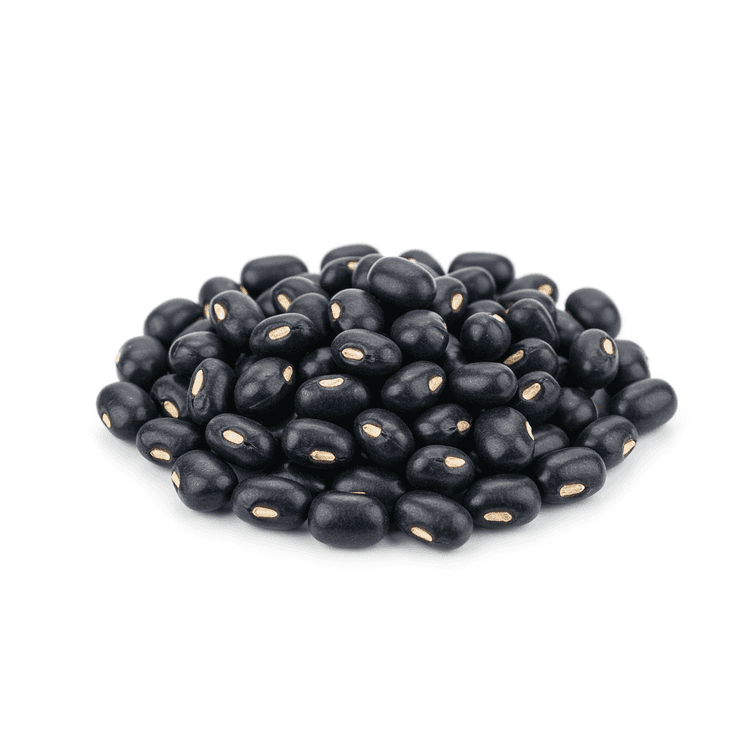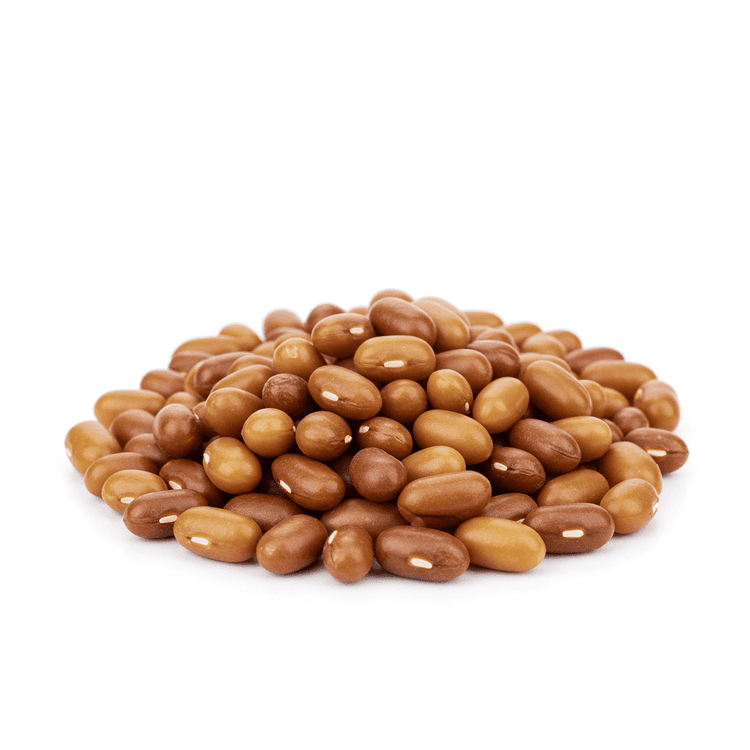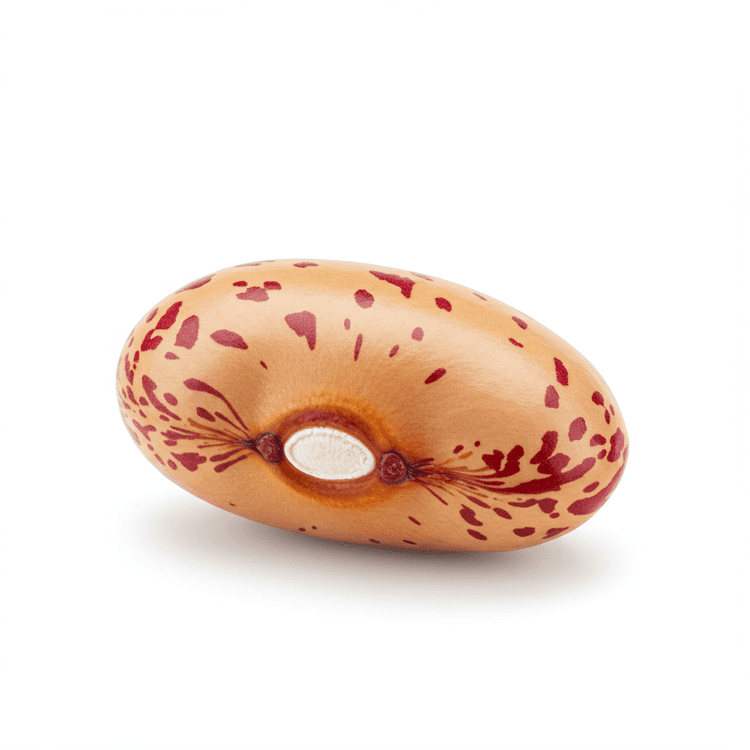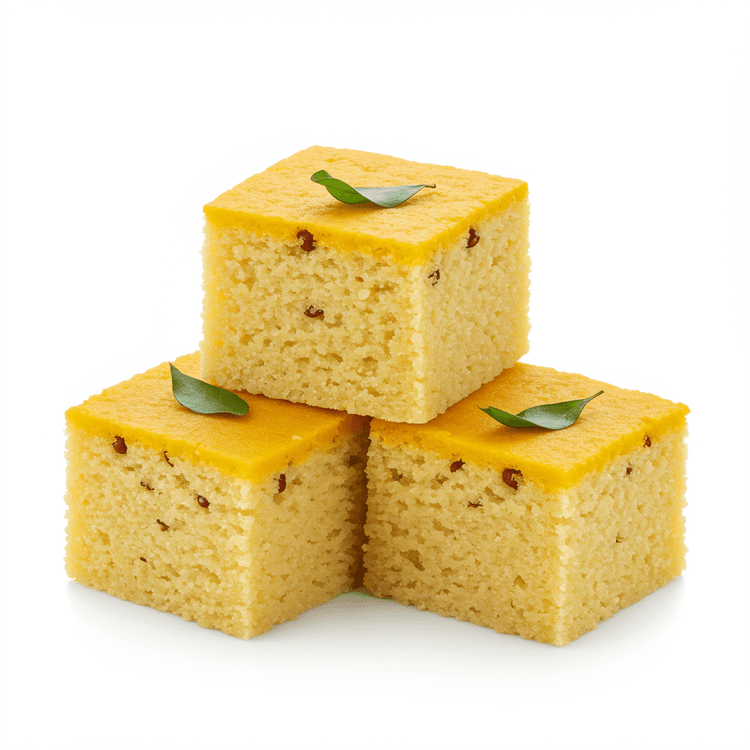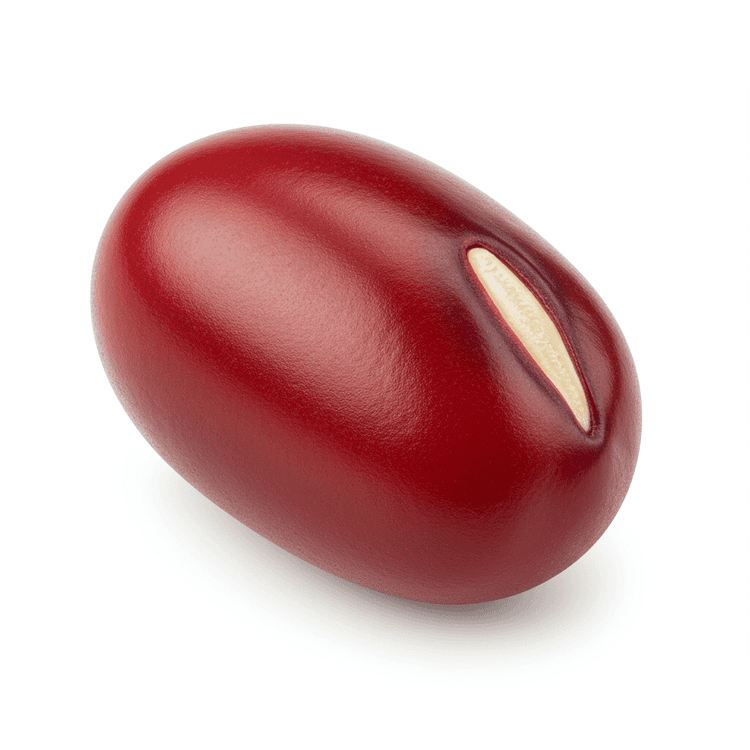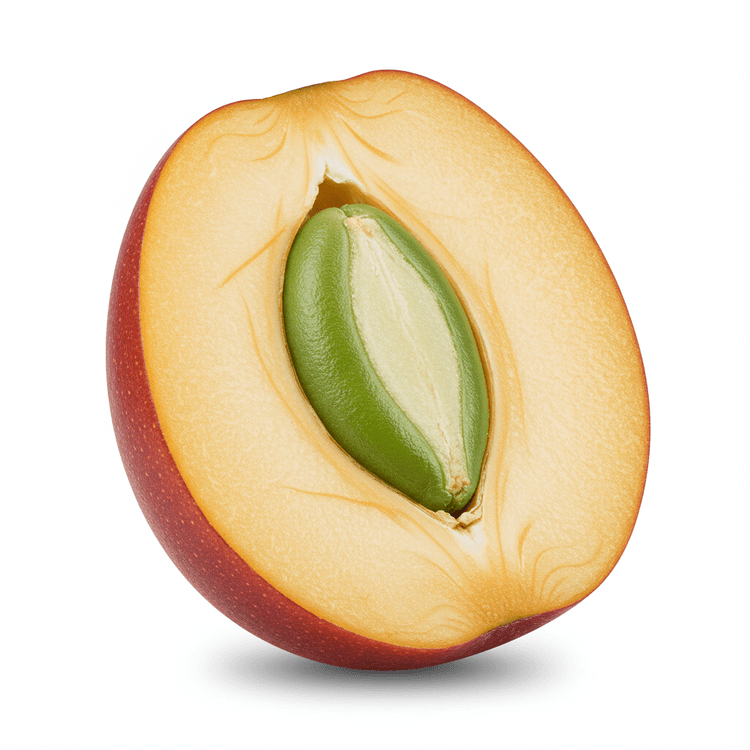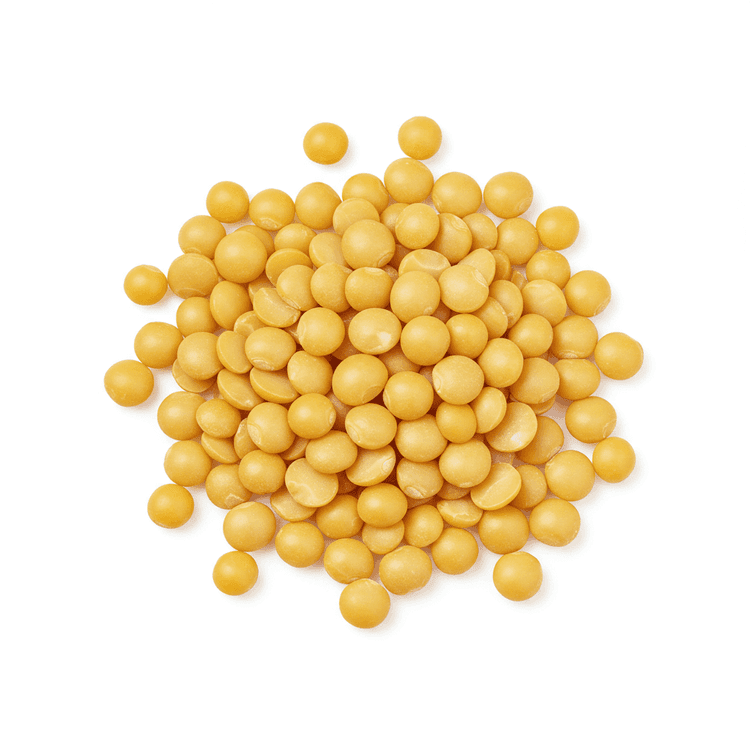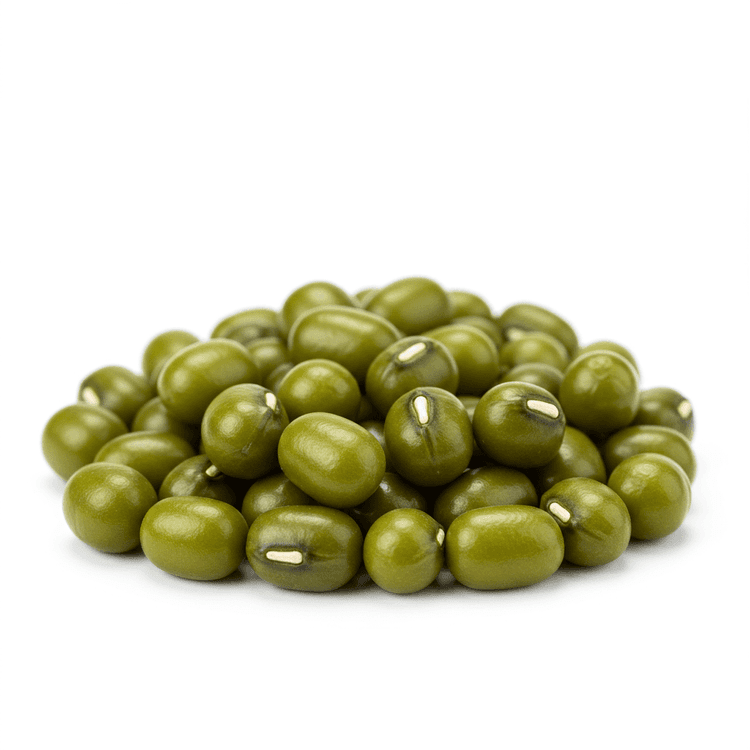
Mung Bean
Mung beans are small, round legumes, typically green in color, though they can also be yellow or black. They have a mild, slightly sweet, nutty flavor. When cooked, mung beans become tender and easily digestible, making them a versatile ingredient in both savory and sweet dishes. These versatile beans are a pantry staple for those seeking healthy and budget-friendly protein sources. The texture of cooked mung beans is generally soft and creamy.
Common Uses
- Mung beans are commonly used to make bean sprouts. Sprouting mung beans yields crisp, refreshing sprouts perfect for salads, stir-fries, and sandwiches. To make the sprouts, you need to soak and rinse the bean for a few days until they sprout.
- Mung bean paste is a popular filling for Asian desserts like mooncakes, buns, and pastries. The beans are cooked until soft, then mashed and sweetened to create a smooth, creamy filling.
- Mung beans are a great addition to soups and stews, providing a hearty and nutritious element. They add thickness and a subtle nutty flavor to broths. Also good to add vegetable stock to enrich the flavor of the soup.
- Ground mung beans can be used to make flour for pancakes, crepes, or dosa-like dishes. Mung bean flour provides a gluten-free alternative with a slightly sweet and nutty flavor.
- In Indian cuisine, mung beans are often cooked into dal, a creamy lentil-based dish. Different variations exists, some that need to be soaked overnight or some need to be pureed using blender and then cooked with spices.
- Boiled mung beans can be easily added to salads as a source of plant-based protein and fiber. Mung beans can improve digestive health and reduce the risk of heart disease and diabetes.
Nutrition (per serving)
Nutrition (per serving)
Calories
212.0kcal (10.6%)
Protein
14.2g (28.4%)
Carbs
38.7g (14.07%)
Sugars
2.0g (4.08%)
Healthy Fat
0.5g
Unhealthy Fat
0.2g
% Daily Value based on a 2000 calorie diet
Nutrition (per serving)
Calories
212.0kcal (10.6%)
Protein
14.2g (28.4%)
Carbs
38.7g (14.07%)
Sugars
2.0g (4.08%)
Healthy Fat
0.5g
Unhealthy Fat
0.2g
% Daily Value based on a 2000 calorie diet
Health Benefits
- Excellent source of plant-based protein, vital for muscle building and repair.
- High in fiber, promoting healthy digestion and gut health.
- Rich in essential minerals like magnesium, potassium, and folate, supporting overall wellness.
- May help lower bad cholesterol levels, contributing to heart health.
- Contains antioxidants that fight free radicals and reduce inflammation.
- Supports stable blood sugar levels due to its low glycemic index.
Chefadora AI is here.
Experience smarter, stress-free cooking.
Storage Tips
To maximize the shelf life of mung beans, store them in an airtight container in a cool, dry, and dark place, like a pantry or cupboard. Properly stored, dried mung beans can last for several years. Cooked mung beans should be refrigerated promptly and used within 3-4 days. Avoid storing them in areas exposed to moisture or sunlight, as this can lead to spoilage.
Marnirni-apinthi Building, Lot Fourteen,
North Terrace, Adelaide, South Australia, 5000
Australia
